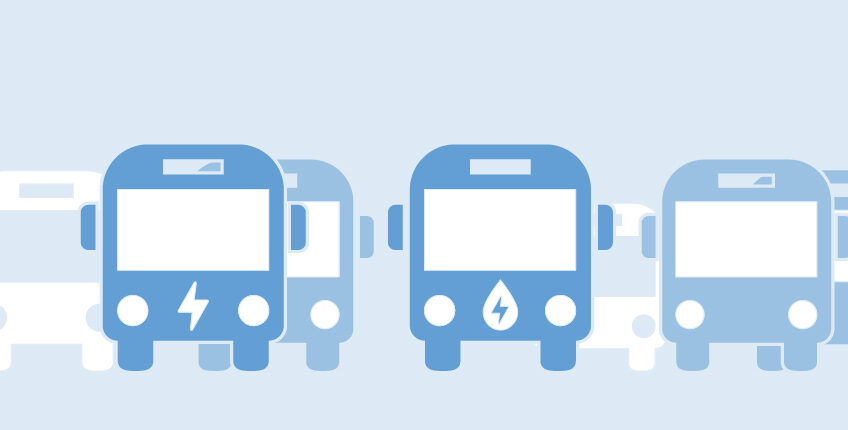Consortium presents the results of accompanying research on funding innovative drives in road public transport at the Federal Ministry of Transport and Digital Infrastructure (BMVI).
Almost 80,000 buses are currently registered in Germany, 40,000 to 55,000 of which are used in public transport. The vast majority of them are still powered by diesel engines. To reach the climate goals, fleet emission and minimum procurement targets have been tightened on both national and European level. By 2025, 45 per cent of new procurements must be ‘clean vehicles’, half of them emission-free.
Companies that provide the vehicles and components face just as many challenges as transport operators and municipal companies. On the one hand, the range of vehicles is still very limited. On the other, buses with alternative drives and the associated refuelling and charging infrastructure have to be integrated in everyday operation, which involves high investment costs.
Today the BMVI invited representatives from transport companies, municipalities, vehicle and component manufacturers, system suppliers and from the political and scientific fields to discuss these issues and present funding opportunities for emission-free buses. Furthermore the accompanying research ‘Innovative drives in road public transport’ supplied an assessment of the funding programmes of the past three years.
Accompanying research presents recommendations for action
The BMVI promotes the conversion of public transport to climate-friendly drives through various funding programmes: including in the framework of the Electric Eobility funding guideline, the National Innovation Programme for Hydrogen (NIP 2) and the Mobility and Fuels Strategy (MFS). These programmes are scientifically supported: a consortium, coordinated by NOW GmbH, evaluates data from the use of the buses among other tasks, in order to assess the various technologies. The key findings were presented in the form of recommendations for action when using the various technology options.
Based on the research results, specific implementation guidelines for bus operators and manufacturers were developed who plan to use innovative drives in road public transport. In addition to the Guide to buses with alternative drives, an interactive decision-making tool is currently being developed to help with the switch to electric buses. The ebustool.de will support transport companies and authorities in future in finding the most suitable e-bus system for them to use locally. Other products include project, market and funding overviews, a concept brochure and a map of regulations on the topic of e-mobility in public transport.
The symposium was supplemented by reports from transport companies about their experience with using the technology and the conversion of depots. In a podium discussion with bus manufacturers and associations, the match between supply and demand was discussed.
Kurt-Christoph von Knobelsdorff, Managing Director (Spokesperson) of NOW GmbH: “In order to achieve the climate protection goals in transport, the share of climate-friendly buses must rise significantly over the coming years. That is possible, but it requires a concerted effort by all those involved. The federal government is making an unprecedented amount of funds available for the acquisition of vehicles with climate-friendly, alternative drives as well as the necessary charging and refuelling infrastructure. I am pleased that NOW can actively support this process.”
Further information:


